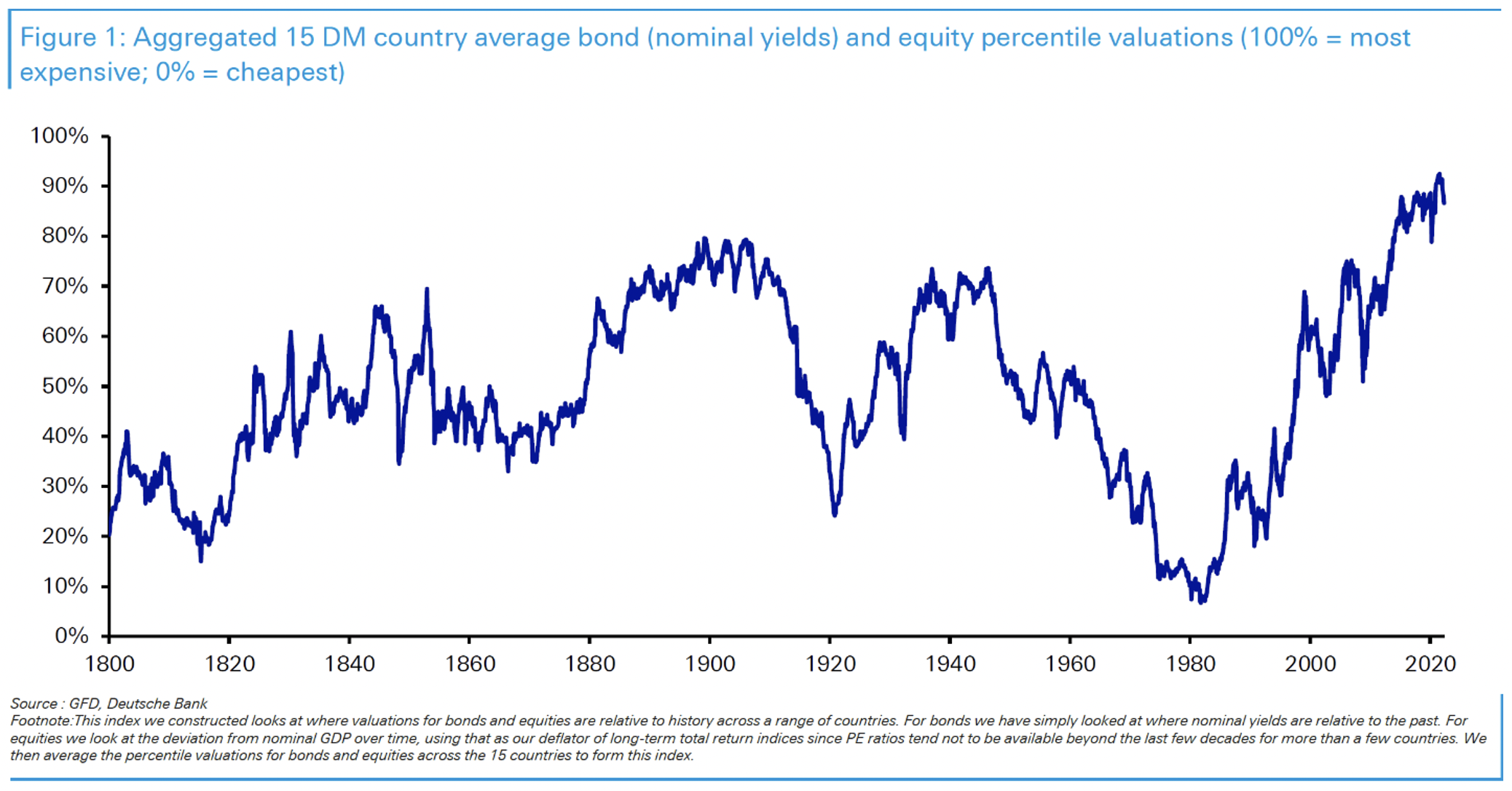Why Lazard's Hofflin thinks the correction has years to go
"The market is expensive."
"No, no, you're wrong. The market is cheap now."
We all like to talk about the market in absolutes.
Hell, we're guilty of this ourselves at Livewire. In our reporting season coverage that's just wound up, we finished every wire by asking our fundies to give us a single number to rate the market on value.
This broad brush treatment of the market is in many ways nonsense. Sure, the market can sell off or make big gains as a whole, but that tells us little about how expensive or cheap the market is at the stock level. Unless you're investing in passive indexed ETFs, individual stocks and sectors are where the rubber meets the road.
Just ask Dr Philipp Hofflin from Lazard, the guest on the latest The Rules of Investing podcast.
In this wire, I summarise Hofflin's comments on whole market valuations vs valuations at the stock level, and also where he sees the best value in the market at the moment.
The absolute value of markets
To illustrate the point of market valuations as a whole versus at the stock and sector levels, let's look at the absolute value of markets.
"A long time ago, almost 30 years ago, I was taught by a fellow that was one of the first full-time analysts," says Hofflin.
"Markets get expensive when people put peak earnings on peak multiples," Hofflin adds.
Today, the United States market looks on any measure very expensive.
"If you look at headline multiples, it may not seem that bad, but you have to allow for the fact that they have record margins, record low taxes, and very low-interest bills."

We can draw a parallel between the United States today with Australia in 2007.
"When that market peaked, we're basically still at that level 15 years later. The multiple back then wasn't that high, or the earnings were at cyclical highs due to the mining boom."
"We're in a similar situation for the US. The earnings are at cyclical highs and they're being placed on high multiples."
So there's a lot of downside for the US.
Australia's valuations are more muted by comparison, in Hofflin's view.
"I don't think Australia is that bad, our market is a little bit overvalued. Markets mean-revert but they do so over long periods of time."
Internal market dynamics matter most
Internally we still have a very distorted market.
Starting in 2018 we had a growth stock boom, which in COVID 2021 became a huge multiple bubble.
"And the multiples bubble we had in Australia was larger than that peak in March 2000; larger than the tech boom. Multiples for the top quintile of stocks reached higher levels than they did back then."
Since late 2016, the information technology sector has had the second worst cumulative EPS growth on the exchange.
"That has at best only half mean-reverted."
"So you're in a position where the high multiple stocks are at big premiums to their normal premiums and the low multiple stocks are at big discounts to their normal discounts."
Hofflin believes there is a lot more pain to come for the stocks that have historically traded at high multiples, there is more pain to be had.
"We are in many ways one year into a multi-year mean reversion internally. From that two-tiered market where there was a lot of hype about tech and innovation and BNPL, and people shunning the more established companies."
"So we're back at 2001 in the sense that the speculative stocks have fallen really hard, people are starting to question the bubble narrative, but there are still many companies - perfectly good companies - that are still far too richly priced.
Internally, there are still a couple of years to go before relative pricing goes back to normal.
So what sectors does Phil believe are attractively priced?
Despite the energy bull market, Lazard owns some producers outright - companies like Woodside (ASX: WDS), Santos (ASX: STO), and Whitehaven Coal (ASX: WHC).
"We own the energy stocks because they're not pricing the high energy prices."
Equally, Hofflin believes financials are also trading at attractive valuations.
"The banks are not that expensive except for CommBank, and all our funds management stocks are on very low multiples."
Lazard also own so-called "picks and shovel" stocks such as Worley (ASX: WOR).
In insurance, "the biggest holding is in QBE... which we originally bought for the premium rate cycle."
Never miss an insight
Enjoy this wire? Hit the ‘like’ button to let us know. Stay up to date with content like this by hitting the ‘follow’ button below and you’ll be notified every time we post a wire.
Not already a Livewire member? Sign up today to get free access to investment ideas and strategies from Australia’s leading investors.
1 topic
4 stocks mentioned
2 contributors mentioned

